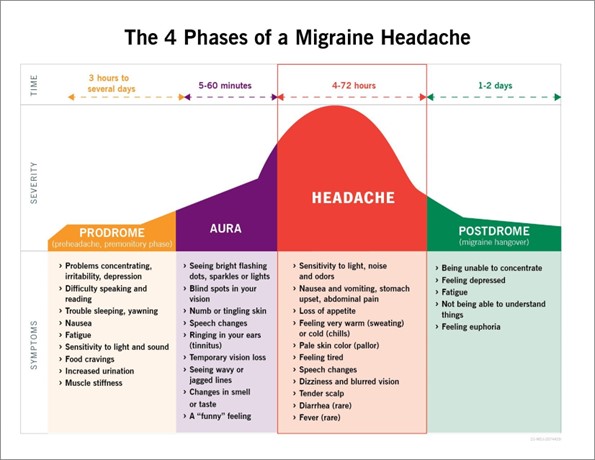A nurse is reviewing the medical record of a client who is requesting an oral contraceptive.
Which of the following findings should the nurse identify as a contraindication to the use of oral contraceptives?
History of renal calculus
Migraines with aura
BMI of 25
History of cholecystectomy
The Correct Answer is B
b. Migraines with aura.
Explanation:
Migraines with aura are considered a contraindication to the use of oral contraceptives. Auras are neurological symptoms that occur before or during migraines and can include visual disturbances, sensory changes, or speech difficulties. Women who experience migraines with aura have an increased risk of ischemic stroke when taking oral contraceptives. Therefore, it is important to identify this condition as a contraindication and explore alternative contraceptive options for the client.
The other options (a. History of renal calculus, c. BMI of 25, d. History of cholecystectomy) are not contraindications to the use of oral contraceptives.

Nursing Test Bank
Naxlex Comprehensive Predictor Exams
Related Questions
Correct Answer is D
Explanation
A client with heart failure should limit their sodium intake. Bottled salad dressings can be high in sodium, so replacing them with homemade vinegar and oil dressing can help reduce sodium intake.
The other options are not recommended for a client with heart failure who needs to limit their sodium intake.
a) Prepared frozen dinners are often high in sodium.
b) Adding salt when preparing a meal would increase sodium intake.
c) Imitation crab and lobster products (option can also be high in sodium.
Correct Answer is A
Explanation
The initial diphtheria, tetanus, and pertussis (DTaP) vaccine is indicated for a 2-month-old infant. The DTaP vaccine is typically administered as a series of doses starting in infancy to provide protection against diphtheria, tetanus, and pertussis (whooping cough).
The recommended schedule for the DTaP vaccine includes a series of doses at 2, 4, and 6 months of age, with additional booster doses given later in childhood. Therefore, the first dose of DTaP is given to infants at 2 months of age.
The other options are incorrect because:
b) A 4-month-old infant: By 4 months of age, the second dose of the DTaP vaccine should be administered, not the initial dose.
c) A 6-month-old infant: By 6 months of age, the third dose of the DTaP vaccine should be administered, not the initial dose.
d) A 15-month-old toddler: By 15 months of age, the toddler would have already received multiple doses of the DTaP vaccine as part of the recommended series. The initial dose is typically given earlier, at 2 months of age.
Whether you are a student looking to ace your exams or a practicing nurse seeking to enhance your expertise , our nursing education contents will empower you with the confidence and competence to make a difference in the lives of patients and become a respected leader in the healthcare field.
Visit Naxlex, invest in your future and unlock endless possibilities with our unparalleled nursing education contents today
Report Wrong Answer on the Current Question
Do you disagree with the answer? If yes, what is your expected answer? Explain.
Kindly be descriptive with the issue you are facing.
